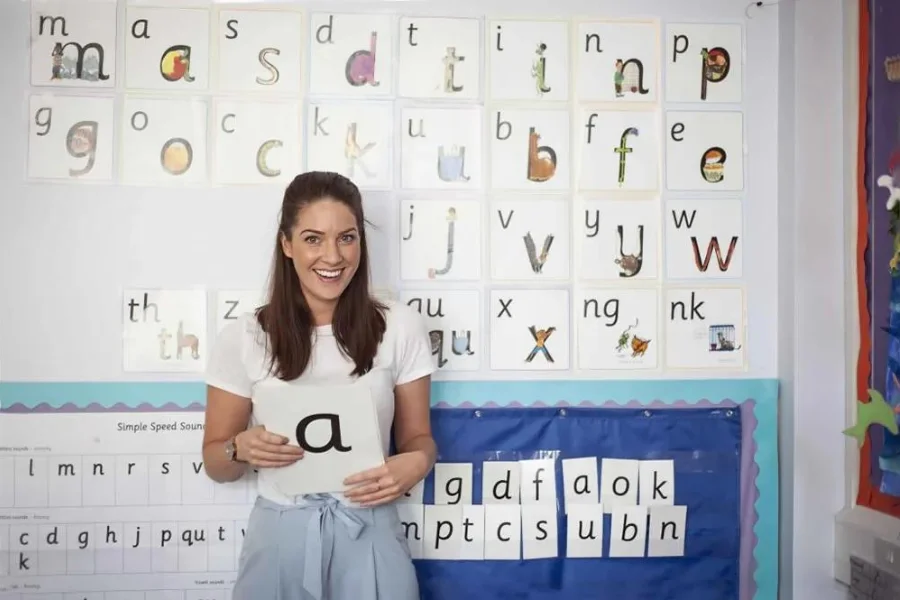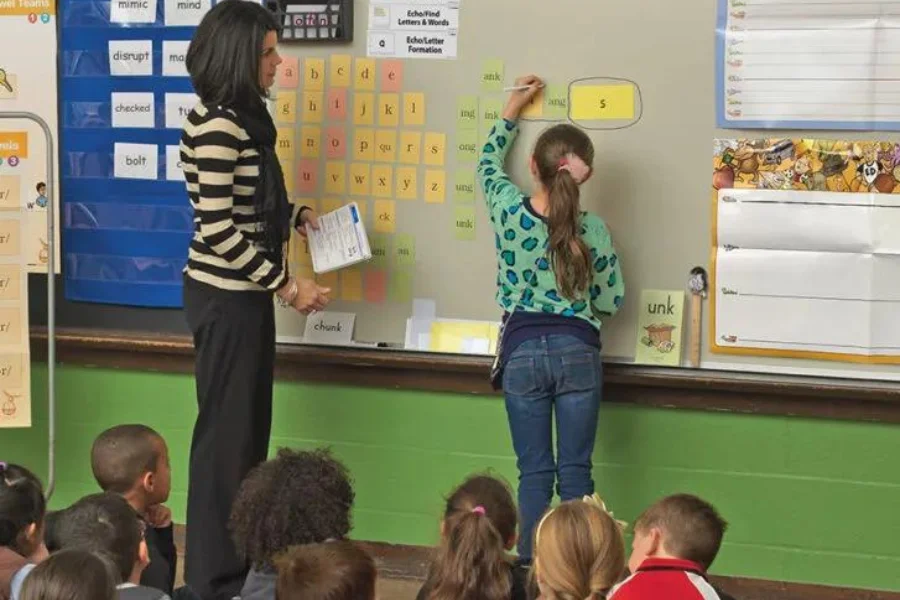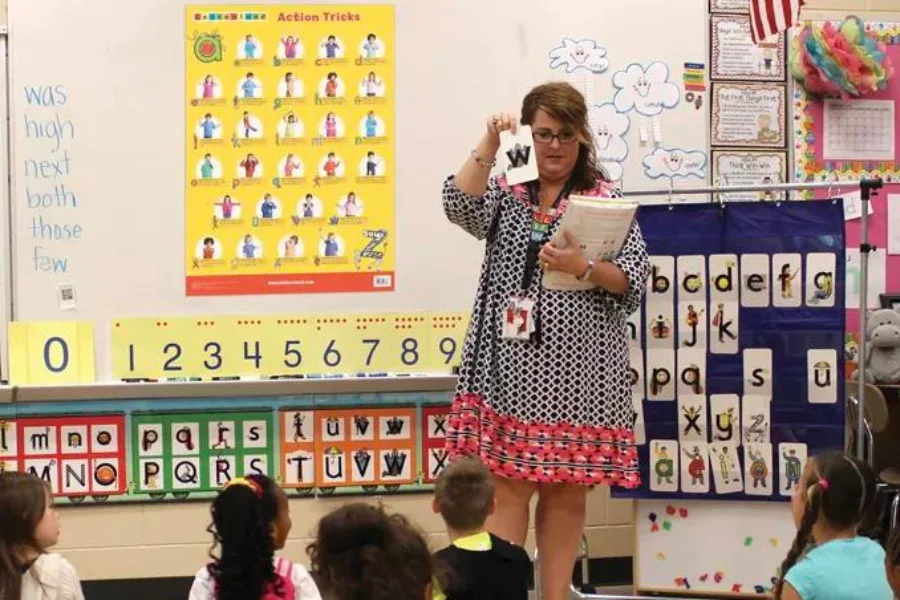Benefits of Phonics

Source: pinterest
Benefits of Phonics
Phonics is an important building block in the voyage of learning to read and write, acting as a bond between the mysterious symbols of our letters and the ironic language they signify. Exploring the Benefits of Phonics, one quickly learns how this method not only advances a kid’s ability to decode words but also meaningfully lifts their confidence in reading.
It becomes apparent through a closer look at the Benefits of Phonics that this method establishes a strong foundation for learning, entitling students of all ages to relate alphabets and sounds with ease and proficiency. The Benefits of Phonics range beyond the classroom, influencing a lifelong love for reading and learning, making it a vital tool in the educational toolkit.
Table of Content

Source: ruthmiskin
Improves Reading Accuracy
Phonics educates kids on the relationship between the alphabet and sounds, allowing them to decode words precisely and Improves Reading Accuracy. For example, understanding that the alphabet “b” makes a /b/ sound helps them read and spell words like “bat” and “book” properly. This information is foundational, paving the way for confident reading.
For more info on the Phonics Teacher Training Course, call +919869866277 / +919869546913.
Click Here, to check the Phonics Teacher Training Course brochure!
Enhances Reading Comprehension
One of the main Benefits of Phonics is its impact on understanding. As kids study to read words more easily, they can concentrate on understanding the text. Phonics puts the groundwork for kids to decode words, which, in go, Enhances Reading Comprehension and allows them to understand the meaning of sentences and stories, inspiring their learning experience.
Builds Reading Speed
As kids become more familiar with phonics, it Builds Reading Speed. This fluency is essential for learning success, as it allows students to read more material in a shorter amount of time. Speed coupled with accuracy also boosts their confidence in reading abilities.
Enhances Spelling Skills
Phonics Enhances Spelling Skills in kids by teaching them to break words into distinct sounds and match those sounds to the alphabet. For instance, with phonics rules kids comprehend the accurate usage of letters ‘c’ and ‘k’ in word formation.
Boosts Vocabulary
The Benefits of Phonics spread to language development as it Boosts Vocabulary. Phonics enhances vocabulary by helping children explore a more expansive range of words at an early age, facilitating a deeper understanding of language.
Facilitates Independent Reading
One of the leading benefits is that it Facilitates Independent Reading. With the skill to interpret words independently, young students can explore books that interest them, fostering a lifetime love for reading.
Promotes Confidence in Learning
Mastering phonics Promotes Confidence in Learning in children. As they realize their ability to tackle new words and comprehend texts, their self-assurance in learning grows. This confidence can translate into other academic areas, promoting a positive attitude toward school.
Prepares for School
The Benefits of Phonics is vast as it Prepares for School. Phonics skillfully equips children to meet the literacy demands of the school curriculum, giving them a fantastic outset in their educational journey.
Supports Dyslexic Learners
Phonics in particular Supports Dyslexic Learners. Phonics instruction can help dyslexic learners improve their reading skills by concentrating on the phonological features of reading and spelling, offering them strategies to overcome difficulties.
Encourages Lifelong Learning
Lastly, the Benefits of Phonics pave the way for lifetime learning. The proficiency to read confidently and comprehend text is foundational to all formats of education. Phonics Encourages Lifelong Learning by instilling these skills early on, supporting academic success.
Phonics has become an indispensable tool in the progress of young readers. The Benefits of Phonics are vast, enhancing every facet of a child’s literacy journey- from improving reading accuracy to raising confidence and motivating dyslexic learners. By investing in phonics education, children explore the world of words as confident, capable, and avid learners.
To learn more about the Phonics Teacher Training Course, contact +919869866277 / +919869546913.
Click Here, for the Phonics Teacher Training Course brochure!

Source: pinterest
Phonics Training for Teachers
Phonics Training for Teachers, an important element of early education, certifies teachers to effectively educate reading and writing by equipping them with teaching skills. Vidhyanidhi Education Society (Govt. recognised) offers a strong Phonics Teacher Training Course, designed to prepare educators with applicable and effective strategies for phonics instruction.
Here’s a closer look at the Benefits of Phonics Training for Teachers provided by Vidhyanidhi Education Society (VES) and how it transforms the teaching experience:
18 Hours of Intensive Training
This all-inclusive training length is 18 hours, sheltering on all aspects of phonics teaching. It is structured to provide educators with a deep understanding of phonics and its use in the schoolroom, ensuring they are well-prepared to guide their learners.
Follows the Prevalent UK-based Synthetic Phonics Learning Methodology
The Phonics Training for Teachers is inspired by the UK-based Synthetic Phonics method, well-known for its success in language learning. This method highlights the synthesis of sounds to read words, offering a clear, structured path for students.
Lectures Using Creative Audio-visual Teaching Aids
To improve learning and retaining, the Phonics Training for Teachers includes audio-visual help. These devices make the sessions more attractive and facilitate a better understanding of phonics concepts, benefiting both educators and their future learners.
Introducing Sounds with Jingles, Stories, and Actions
The Phonics Training for Teachers creatively familiarizes the 42 sounds through jingles, narratives, and actions. This contemporary approach aids in memorization and makes learning fun, facilitating a positive learning atmosphere in classrooms.

Source: letterland
Complete Practice of all the 42 Letter Sounds & Digraphs Sounds
Participants receive extensive practice in all 42 sounds, including letter sounds and digraphs. This practice is crucial for mastering phonics teaching techniques, ensuring teachers can confidently instruct their students.
Mock-drills
Mock drills simulate real classroom scenarios, allowing teachers to practice their new skills. These drills are instrumental in refining teaching methods and preparing educators for the diverse learning needs they encounter.
Doubt Clearing Sessions
The training includes dedicated sessions for resolving doubts and answering questions. This ensures that teachers leave the program with a clear understanding, ready to implement their phonics knowledge effectively.
Phonics Training for Teachers at Vidhyanidhi Education Society (Govt. regd.) not only advances teachers with the Benefits of Phonics but also renovates them into specialists, skilled in shaping the basic learning abilities of their learners. This course is an important resource for educators aiming to improve their instructional methods and nurture a love for reading and writing among young students. Through this training, teachers are prepared with a toolkit of approaches, making the education of phonics an engaging and rewarding experience.
Unlock the Benefits of Phonics Training for Teachers by joining Vidhyanidhi now!
For further details on the Phonics Teacher Training Course, call +919869866277 / +919869546913.
Click Here, for the Phonics Teacher Training Course brochure
Benefits of Phonics
FAQ
What is the Main Purpose of Phonics?
The main purpose of phonics methodology is to teach reading by associating sounds with letters or letter groups.
What is the Best Age to Start Phonics?
The best age to start phonics is typically between 3 to 5 years, setting a strong foundation early on.




